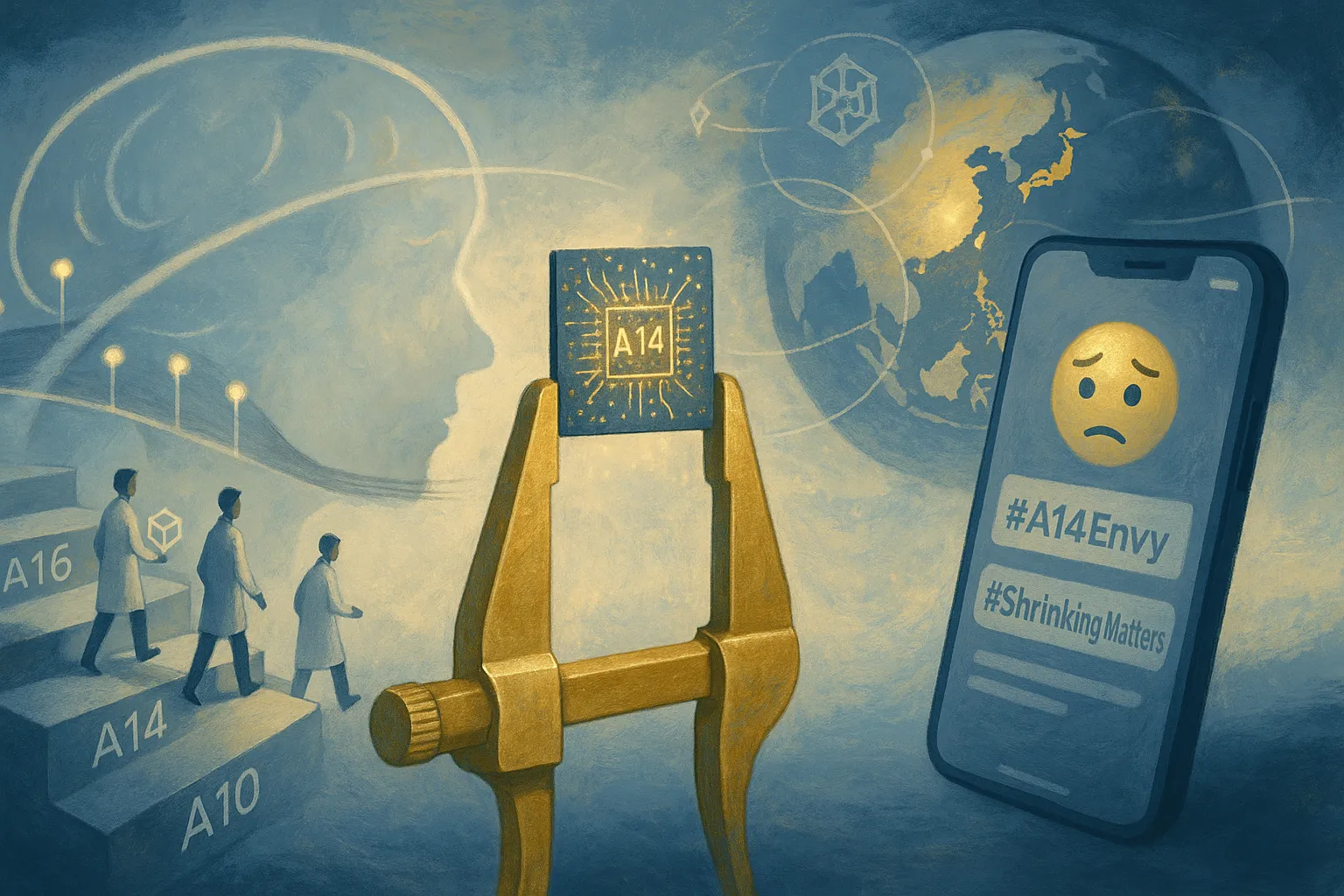The new chips will shrink features down to 1.4 nanometers - a scale so small that about 50,000 transistors could fit across the width of a human hair. If you're struggling to visualize that, don't worry - even the engineers need supercomputers to work at this scale.
TSMC's announcement marks a clear shift in the industry. While smartphone makers traditionally jumped at new chip technology first, AI companies now lead the pack. It seems teaching machines to think requires more computing muscle than teaching humans to scroll through social media.
The $40 Billion Bet
The company expects to pour roughly $40 billion into capital spending this year alone. That's enough money to buy everyone in Taiwan a new iPhone, though TSMC has other plans for the cash. They're betting big on artificial intelligence, with good reason - AI workloads demand increasingly powerful chips.
Speed Boost or Power Saver? Take Your Pick
Speaking at a company event in California, TSMC's Deputy Co-Chief Operating Officer Kevin Zhang laid out the roadmap. The A14 process promises 15% better speed at the same power consumption, or 30% less power drain while maintaining current performance levels. For those keeping score at home, that's like getting a free lunch and a doggie bag.
But TSMC isn't just showing off its technical prowess. The company sees the semiconductor industry hitting $1 trillion in revenue by decade's end. That's a lot of silicon, even by Silicon Valley standards. While some investors worry about an AI bubble, TSMC keeps pushing forward with the confidence of someone who knows where all the computer chips are buried.
The timing of this announcement proves interesting, coming just as markets digest mixed signals about U.S. tariffs on Chinese goods. TSMC's shares bounced up 1.5% in early trading, suggesting investors believe smaller transistors trump bigger trade barriers.
The company's steady march toward atomic-scale manufacturing hasn't gone unnoticed by its biggest customers. Apple and Nvidia continue to trust TSMC with their most advanced chip designs, a bit like letting the world's steadiest surgeon handle your most delicate procedures.
A Staircase to the Future
Looking ahead, TSMC plans an A16 process for late 2026 as a stepping stone to A14. It's like the company is building a staircase to the future, one atomic layer at a time. And yes, they had to change their naming scheme because their previous "N" prefix ran out of sensible numbers. When your technology gets too small for your naming convention, you know you're doing something right.
Why this matters:
- We're watching the physical limits of computing get pushed further just when AI needs all the horsepower it can get. It's like Moore's Law got a second wind, right when the party was supposed to be ending.
- The race to build smaller, faster chips has become a global strategic priority. When your phone's processor becomes a matter of national security, you know the world has changed - though your phone probably feels pretty important about itself now.
Read on, my dear:










